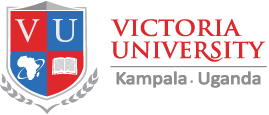Quick Facts
Credential
Bachelor's Degree
Delivery Options:
Both On-Campus and Online - Some of your Classes will be in-person, on campus and some will be done online.
Duration: 3 years
With a typical full-time course load, this programme will take 3 years to complete.
Language of instruction
english
Admission Requirements
Normal Entry Requirements for Degree Courses (in line with NCHE requirements):
Five (5) passes of Ordinary level subjects including English and Mathematics Qualification/ experience judged to be the equivalent to the above and UACE Advanced level with at least ONE principal passes in relevant subjects.
Must attain the University mature-age entry examination of Victoria University for the Bachelor of Tourism and Hospitality Management.
Must possess a second class diploma in relevant areas of Business and Management from a recognised institution.
Applicants whose first language is not English will be required to demonstrate a proficiency in the English language by passing an English proficiency Test conducted by the University.
What you will Learn
At the end of the Tourism and Hospitality Management programme, you will be expected to:
Plan, design and effectively manage itineraries and other tourism products and facilities.
Communicate in at least two international languages and effectively guide tourists.
Examine local, regional and international tourism trends and policies for sustainable tourism resource management and promotion.
Have sound management and entrepreneurial skills for self-reliance in the tourism and hospitality industry.
Describe and explain a range of relevant concepts, theories and models to the solution of problems within Tourism and Hospitality.
Describe and identify management decisions in an international tourism and hospitality context.
Demonstrate the ability to apply a range of academic and intellectual skills relevant to level four study including, information-gathering, analysis and problem identification.
Demonstrate the use of communication and organisation skills and the ability to work with others.
Develop your own learning with guided support to explore a wide variety of learning sources and opportunities.
Compare and contrast a range of relevant concepts, theories and models to the solution of problems within Tourism Hospitality.
Analyse and discuss tactical management decisions in an international tourism and hospitality context.
Demonstrate the ability to apply a range of academic and intellectual skills relevant to level five study including, information-gathering, problem-solving, analysis, and evaluation.
Demonstrate the effective use of communication and organisation skills and the ability to work with others.
Apply a range of relevant concepts, theories and models to the solution of problems within Tourism and Hospitality.
Synthesise and evaluate strategic and tactical management decisions in an international tourism and hospitality context.
Critically evaluate Tourism and Hospitality Management thinking through an extended piece of Research, Cognitive and Thinking Skills.
Career Opportunities
A Bachelor of Tourism and Hospitality Management degree prepares graduates for a wide range of career opportunities in the tourism and hospitality industry, both locally and internationally. Graduates with this degree can pursue various career paths, which may include:
Hotel or Resort Manager: Hotel or resort managers oversee the operations of hotels, resorts, or other hospitality establishments. They are responsible for managing staff, ensuring guest satisfaction, overseeing day-to-day operations, implementing marketing and sales strategies, and managing budgets and financials.
Event Manager: Event managers plan, organize, and execute events such as conferences, conventions, exhibitions, weddings, and other special events. They manage event logistics, coordinate with vendors, handle budgeting and financials, and ensure the smooth running of events to meet client expectations.
Travel and Tour Operator: Travel and tour operators design, plan, and organize travel packages for individuals, groups, or corporations. They manage travel arrangements, coordinate with airlines, hotels, transportation providers, and other vendors, and provide destination information and travel advice to clients.
Restaurant or Food and Beverage Manager: Restaurant or food and beverage managers oversee the operations of restaurants, cafes, or other food and beverage establishments. They manage staff, ensure food quality and guest satisfaction, develop and implement marketing strategies, and handle budgeting and financials.
Destination Marketing Manager: Destination marketing managers promote and market tourist destinations, such as cities, regions, or countries, to attract tourists and increase visitation. They develop destination marketing strategies, create promotional campaigns, collaborate with tourism stakeholders, and analyze market trends to drive tourism growth.
Hospitality Consultant: Hospitality consultants provide strategic advice and consulting services to hospitality businesses, including hotels, restaurants, and other hospitality establishments. They analyze business operations, provide recommendations for improvement, develop marketing strategies, and assist with financial planning and management.
Cruise Ship or Airline Manager: Cruise ship or airline managers oversee the operations of cruise ships or airlines, ensuring smooth and efficient operations, managing staff, overseeing guest services, and implementing safety and security protocols. They also handle budgeting and financials, coordinate with vendors, and ensure compliance with industry regulations.
Conference or Convention Planner: Conference or convention planners organize and manage conferences, conventions, and meetings for corporations, associations, or other organizations. They handle logistics, coordinate with vendors, manage budgets, and ensure the smooth execution of events.
Resort or Destination Wedding Planner: Resort or destination wedding planners specialize in planning and coordinating weddings at resorts or other destination locations. They work closely with couples, vendors, and resorts to plan and execute weddings, handle logistics, manage budgets, and ensure a memorable experience for the wedding party and guests.
Tourism Development Officer: Tourism development officers work in government agencies, tourism boards, or destination management organizations, promoting and developing tourism in specific regions or destinations. They develop tourism strategies, engage with stakeholders, implement tourism policies, and drive tourism growth through marketing, planning, and development initiatives.
Tuition & Fees
The tuition and fee amounts are estimates based on current academic year's rates. For financial planning purposes, please use these totals as an approximate estimate of your costs. Actual fees may vary by term and enrolment activities.
Download
